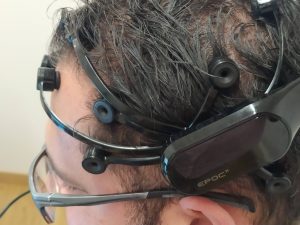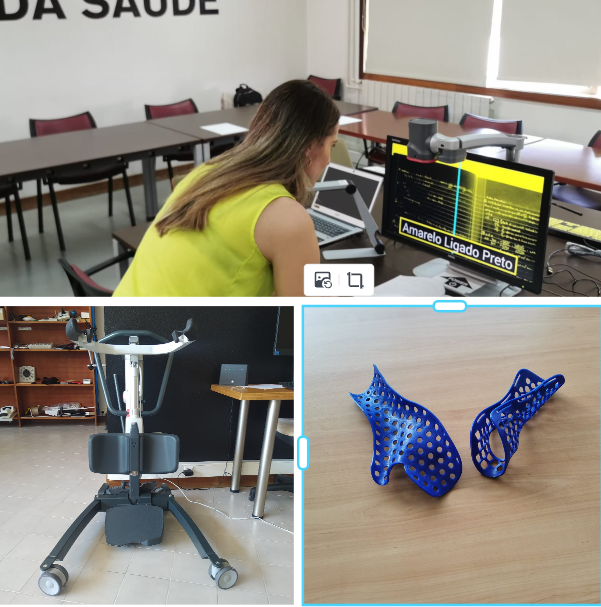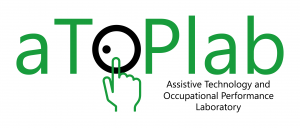About
The report Organisation for Economic Cooperation and Development (OECD) Review of the Tertiary Education, Research and Innovation System in Portugal (2018), as well as the Decree-Law No. 43/2014 of 18 March and Decree-Law No. 74/2006 of 24 March – Degrees and Diplomas of Higher Education refer that the training offer in polytechnic education should have a strong regional insertion, embodied in the definition of the study plans and in the implementation of the training component in a work context.
The Strategic Plan of the Polytechnic of Leiria 2010-20, as well as the proposals under discussion for the 2020-2030 plan, foresee the reinforcement of institutional relationships and the promotion of the integration of students in contexts of real and community intervention, through the OE2 and OE3, being in line with the UN Sustainable Development Goals: SDG3, SDG4 and SDG10. On the other hand, the close relationship with the community and local institutions is valued, taking advantage of the dynamics of the regional ecosystem and which is the aggregating matrix of the European University consortium (RUN – Regional University Network) led by the Polytechnic of Leiria. The Escola Superior de Saúde de Leiria (ESSLei) has been, over time, advocating a training offer in response to regional training needs, but aligned with international best practices where the close relationship with research and innovation centres, have proven to be differentiators. It is in this context that a group of teachers and researchers, with diverse backgrounds and areas of specialization, propose the creation of an Assistive Technology & Occupational Performance Laboratory, the aTOPlab (Assistive Technology & Occupational Performance Laboratory).

Framework
aTOPlab is a research and training laboratory for the study, development and application of assistive technologies (AT), as well as for support to the community, sustained by a global, integrated and transversal national policy which equitably compensates and attenuates limitations and restrictions of people with permanent or temporary disabilities (Decree Law no. 93/2009, of 16 April and Decree Law no. 42/2011, of 23 March), as well as collaborating in the response to societal challenges, through the respect for diversity and equity in the digital transformation of europe. It also integrates the carrying out of studies that link the promotion of occupational performance through specific cognitive and functional training using technology.
The aTOPlab is a satellite laboratory of ciTechCare promoted by ESSLei whose objectives and responsibilities are defined in this document. It is aligned with the values of Politécnico de Leiria, proposed in its Strategic Plan for 2030: Learn, Lead, Share.
aTOPlab is oriented towards the scientific development and cycles of production and implementation of AT, being understood as AT all and any product (including devices, equipment, instruments, technology and software) available to prevent, compensate, monitor, evaluate and neutralize any impediment, limitation of activity and restriction in Participation based on the classification ISO 9999:2007 (Decree Law no. 93/2009, of 16 April, Decree Law no. 42/2011, of 23 March).
Integrating into ciTechCare’s mission through the “development of cutting-edge technologies for the promotion and care of health of excellence…” and sharing the same vision, in which “multidisciplinary and interprofessional collaboration can provide better and faster solutions to improve health…”, it will have a service provision aspect, which will interconnect with the community, in the assessment and/or application of AT and the monitoring of results resulting from its use. Associated to the application of AT is the design of products and spaces in line with the European Concept of Accessibility (ECA), which integrates the study of accessibility and compliance with universal design.
Based on the principle of the social relevance of research, it also intends to integrate a strong component of information and advice to AT users, by carrying out comparative studies of different AT and their components, by analysing the suitability of AT to specific conditions/limitations, as well as by studying and advising the AT adjusted to the profile of the individual who uses aTOPlab. In this aspect, we observe the assessment of the individual, environment, activity and support product in order to issue a technical opinion to be considered in AT acquisition processes.
The establishment of protocols and partnerships with several entities, as well as the involvement of community stakeholders will be a decisive aspect to its operation. The promotion and co-promotion of R&D projects, involving as partners, development and commercialisation companies of support products and, in particular, the end users in a user-centred design perspective.
In order to operationalize its regular operation, ESSLei defines a plan of activities and occupation for the period of this proposal, which is an integral part of it.

Axes of Activity
- Development of scientific and technical projects of a theoretical, practical or experimental nature, of national and international scope;
- Promotion and support of scientific works of young researchers integrated in the study cycles of the Polytechnic of Leiria and partner institutions;
- Specialised and advanced training;
- Dissemination of theoretical, practical or experimental knowledge;
- Provision of services to the community;
- Development of studies and works oriented towards the needs of the scientific, institutional and communitarian business community at local, national and international levels.

The aTOPlab projects fall under ciTechcare objective c. “Prototype digital technologies and innovative systems to target real needs experienced by patients and caregivers and foster independent living in patients with reduced autonomy.”
The aTOPlab presents itself as a structure that compiles knowledge of the use of support products in the different areas of human occupation, in order to be able to carry out a comprehensive assessment of all the needs and skills of the person seeking specialist advice. In an objective way, any person who is referred to this laboratory can enjoy an in-depth study of the support products necessary to (re)establish his/her autonomy and independence, mainly:
- Assessment for the performance of Activities of Daily Living (ADL) and Instrumental Activities of Daily Living (IADL)
- Assessment for positioning and functional mobility
- Assessment for access to digital work, learning, socialising and leisure environments
On this last point, in particular, it houses the Altice Foundation’s Inclui Programme.
Within the scope of this partnership we aim to develop activities in the following areas:
Area 2. Products – Through evaluation and advice, it will enable the enjoyment of benefits in the cost of market-leading products that enable digital accessibility to computers, mobile phones, tablets and augmentative communication.
Area 3. Solutions – Technological solutions and services developed at the initiative of the Altice Foundation and available free of charge to all those who need them.

